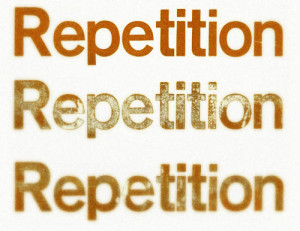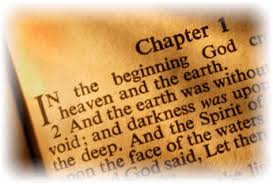
Photograph by Darlene Dine
2/8/15 – I am revisiting this blogpost that I wrote about honor and shame months before I knew about the honor/shame dynamic of scripture. The SCA operated according to honor principles – and that was why there was unity and peace among very different people. I am not rewriting it, but sharing it again. Until we become more focused on giving honor to our King and each other, than we are with demanding that others honor us, there will be no unity. The people of the SCA understood that – nothing was more important that bringing honor to the association and living in peace with one another in a non-faith setting.
****************************
Sometimes God shares truths so painful that there is very little possibility of sleep afterwards, indeed there is very little possibility of doing anything except repenting and absorbing the devastating implications of the revelation. And no, this isn’t new revelation, something that only I see in the scriptures — this wasn’t anything from scripture at all, and yet it is also the whole of scripture.
For many years now I have been having recurring dreams of an organisation I used to belong to, but that I no longer had the garments to participate in. I would always wake up confused, and the last of these dreams was just a few weeks ago. I would pray for illumination, but none would come — none came because I wasn’t ready, willing, or able to hear it and I guess that changed last night.
Twenty years ago, when I lived in the California Bay Area, I joined an organisation called The Society for Creative Anachronism (SCA) and to put it simply, we were a group of reinactors devoted to the celebration of the culture of the European Middle Ages and Renaissance. We were rich and poor, liberal and conservative, Republican and Democrat, brilliant and average, distinguished and ordinary, artists, athletes and servants, every color, every religion — and we had a unity I have never, ever seen rivaled. We had unity, not because we were alike but because we saw our common passion and goal as the only thing that mattered. In every way, we were set apart from the world towards the furtherance of that goal.
The campsite and garb (clothing) of one was Byzantine, and the next was Elizabethan — or perhaps a couple would walk around where one was Italian Renaissance and the other was dressed in a simple T-tunic, and it never occurred to those in full Elizabethan splendor to notice or care. There was a suspension of ego, one that allowed us to appreciate where everyone was at and ignore the variations. The people who were good at costuming didn’t complain about those who weren’t, but would help anyone and everyone learn to do it better — if that’s what they wanted. Those whose focus was martial combat weren’t always the best dressed, but those who were the best dressed enjoyed watching them fight. Those who served, served. I never saw such a group of “Martha’s” in my life; it was their passion, and a recognized form of contribution – every bit as much as the arts and the fighting. But it went beyond that, they were dedicated to chivalry and having an excellent reputation in the community. There were state parks and private landowners who would prefer that we use their campgrounds for our events than local church groups, because we were committed to being good neighbors. If a site was not in pristine condition when we arrived, it was when we left. Everyone, from the greatest to the least, was dedicated to the society and to the people in it. When someone wasn’t, the peerage quickly stepped in.
A fighter who cheated would never be knighted, and in fact would be taken aside and spoken to and if necessary, purposefully removed from tournaments by better fighters and ostracized. An artist who refused to teach and share and was prideful would never be given a peerage. A servant who couldn’t be worked with wasn’t given events to run and would never gain a peerage either. We knew, without anything ever being said, that the unity of the organisation was about how we treated each other and not about who was the best fighter, who had the flashiest embroidered garments, or who could throw the best feasts. It came down to community based chivalry — something I have been longing for so badly since becoming a believer that it even infiltrates my dreams.
If a woman showed up alone and was setting up her tent, she wasn’t alone for long. She’s be swarmed by men, if they were available. Not men looking for anything in return, men looking for a chance to be of service to a lady. They would often show up anonymous, help, and be on their way to help someone else get set up for the weekend.
And people tell me — “But my church is just like that.” But I challenge that line of thought, because I have never seen a church gather with another church, a church who dresses and does things radically differently, where there was still unity without judgment, where there was no consciousness of the differences.
When Kingdoms and Principalities would get together for wars in the SCA, there was no animosity; there was still that shared feeling of community. Oh there were always a few old biddies a bit cranky about this or that, but we still shared that common goal and ignored the small stuff. Generally, we often didn’t even know who won the wars nor did we care. We didn’t come together to win, we came together to celebrate on the same day, doing the same thing, towards the common goal.
Someone in the SCA would rather die than work weekends, and if they ever did get a job that required it, they moved mountains to get one that didn’t. They didn’t spend their vacations at Disneyland, they spent their vacations making long weekends or sometimes whole weeks so we could gather for feasts and battles and tournaments – just to be together, doing the same thing in different ways but in the ways that truly mattered most, those ways were generally the same.
Our expendable income went towards the SCA, way more than 10% in most cases. We were avid readers of history, we cared so very deeply about knowing and learning and sharing that common passion. I could walk into any house today and tell you if the person is in the SCA, but I couldn’t walk into any house and tell you if someone is a believer.
The SCA understood discipleship, and it was an expected form of service. Artisans took apprentices, Knights took squires and Pelicans (the SCA version of Martha) took proteges. It was simply something one was expected to do, to share and train up the people who wanted to be able to do what you could do. Character mattered; no matter how talented you were, character mattered more.
And a great many of them were pagans who had never cracked open a Bible in their lives. And they were loving and humble enough to let the small stuff, the differences, go by unnoticed. I never experienced such a feeling of belonging before, and such a feeling of safety. Despite hundreds and hundreds of people camped together, and sometimes thousands, I never heard of any crime — no assaults, no thefts. It was unthinkable. It was as though we were brothers and sisters, even when we did not know each other’s names. I spent last night crying, because I had not allowed myself to think about how desperately I missed that kind of unity, and frankly that kind of humble maturity — because when I became a believer, the church drove it out of me. And come to find out, the church drove it out of all of us.
There is no suspension of ego within the Body of Messiah. In general, if someone wears a head covering then everyone has to wear one, and vice versa. If this pastor believes in pre-trib rapture, or hell, or whatever, then everyone else has to — or there will be no unity. No grace offered, no looking past the small doctrines, no concept of being unified by a common passion. No true acknowledgment of the biggest issues at all.
What is the common passion we are supposed to have? In the SCA it was a passion for the culture of Medieval Europe, a very large umbrella that covered a great many topics. But the passion of the Body is supposed to be eternal — the scriptures and Messiah. If our passion was Yeshua (Jesus) and the Scriptures, we could indeed be unified but that isn’t really our passion.
Our passion is being right, it’s being agreed with and not challenged. Our passion is for conquest, for converting everyone else to think exactly the way we do. Our passion is uniformity under our own banner, and division from everyone else — it is contempt and distrust and judgement over differences of opinion, and oftentimes an utter lack of patience for the learning curve. But people aren’t called to be set-apart unto agreement with me or you, according to our timetables; we are instead called to be set apart, holy, unto faith in the God of Abraham, Isaac and Jacob through belief in His Messiah, who was crucified for us. If our focus was truly upon Him, the living and eternal Word, then we could see doctrinal opinions the way that people in the SCA see costuming that is radically different than their own.
Right now, we are so concerned that people agree with us that we brand everyone who doesn’t in very uncharitable terms, as though we ourselves are the plumb line. We make assumptions as to why they disagree or do not understand, and what their real motivations are, and what kind of people they are. In the SCA, I made Elizabethan gowns and did fancy embroidery. Some people always wore T-tunics. Some people wore them because it was the only thing they could understand how to make, other people really liked wearing them because they were comfortable. Others wore them because they wanted to spend their time focusing on being servants, putting on the grand events. They didn’t wear them because they wanted to look bad, and really they could be incredibly beautiful — they only looked bad if I developed a mindset that only Elizabethans were good and beautiful. Elizabethans were more complex, and required a larger skillset, but a person in a corset and hoops isn’t necessarily as useful as someone in a t-tunic, it’s all a matter of perspective. In the SCA, we had an entirely different perspective.
The way a person looked, to us, had more to do with what they did and with who they were, than how they were dressed. The people who were recognized, weren’t recognized for what they knew but what they did with what they knew. In many ways, the Church — be it Catholic, Protestant, Pentecostal, Messianic — has a less Biblical mindset than this rag tag group of people that most believers would avoid like the plague. Greek Philosophy is about thinking the right things, but a Biblical mindset it about acting on the right things. The Biblical mindset is exemplified in Jerusalem three times each year, as Jewish men from all over the world, from Orthodox to Reform, gather with one shoulder and one voice to praise the God of Abraham, Isaac and Jacob, forgetting their differences and loving God as a spiritual nation, and celebrating together, as they did in the days when Messiah walked the earth. No they don’t do it perfectly, but they do gather together and suspend their egos towards a common passion.
It’s time to recognize the common passion. We have the Bible and we have the Messiah of Israel. And if we come together with our brothers and sisters and think of anything else first, we have broken the two greatest commandments.
Mark 12
28 And one of the scribes came, and having heard them reasoning together, and perceiving that he had answered them well, asked him, Which is the first commandment of all?
29 And Jesus answered him, The first of all the commandments is, Hear, O Israel; The Lord our God is one Lord:
30 And thou shalt love the Lord thy God with all thy heart, and with all thy soul, and with all thy mind, and with all thy strength: this is the first commandment.
31 And the second is like, namely this, Thou shalt love thy neighbour as thyself. There is none other commandment greater than these.
32 And the scribe said unto him, Well, Master, thou hast said the truth: for there is one God; and there is none other but he:
33 And to love him with all the heart, and with all the understanding, and with all the soul, and with all the strength, and to love his neighbour as himself, is more than all whole burnt offerings and sacrifices.
34 And when Jesus saw that he answered discreetly, he said unto him, Thou art not far from the kingdom of God.
I Cor
2 For I determined not to know any thing among you, save Jesus Christ, and him crucified.
If we believe that Yeshua is Messiah (Jesus is Christ), then we need to start acting like it. We need to want unity, we need to want to be a body — with a head that is not our own head, but Yeshua — who doesn’t think like us, or act like us. Once we stop pretending like He does, then we can really get somewhere. It really is about a suspension of ego. Not a suspension of disbelief, but a suspension of ego.
Perhaps the time has come, when we meet a believer, to ask not what their doctrine is and then decide if we want unity, but to recognize the unity and then let the doctrine take care of itself. That’s how we did it when we were pagans, and if that doesn’t shame us — well I don’t know what would.




